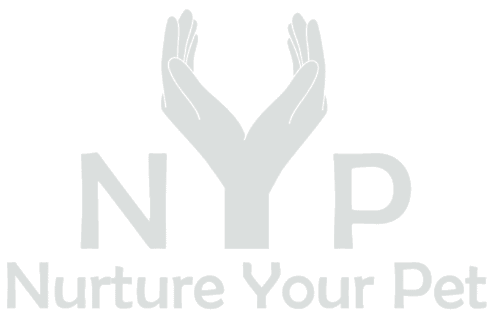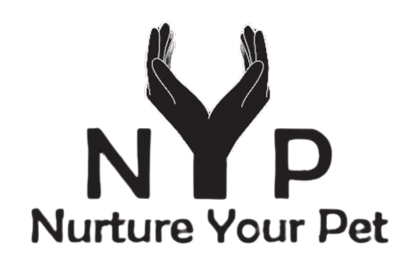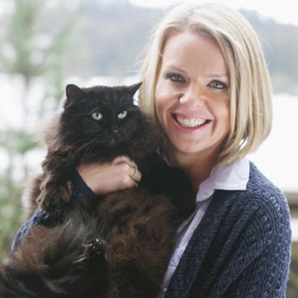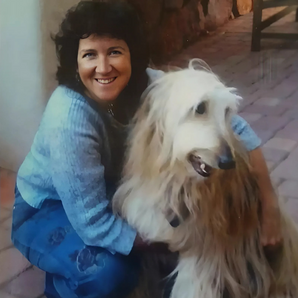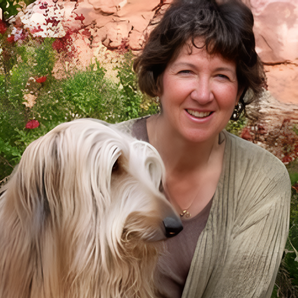To get a better understanding of how to handle your dog’s biting as they grow, we reached out to certified dog trainer Ella Camps-Linney. Ella is the founder of Kirby Dog Services offering accredited, expert, fun dog and puppy training using the latest positive reinforcement techniques. A proud member of the Pet Professional Guild, Ella strictly teaches only kind, ethical, choice and reward-based training. She is also a registered instructor with the Animal Behaviour and Training Council (ABTC) and has been recognized as one of the top three dog trainers in all of London. Her outstanding ability to connect with her canine clients has also earned her credit from numerous influential organizations, including Bark and The Guardian.

NYP: What is the best way to eliminate puppy biting?
Camps-Linney:
“1. Redirect play biting and mouthing
Keep a variety of toys to hand so you can redirect play biting safely. If your puppy begins to mouth your hands, try not to move your hands away or squeal (this will excite your puppy and encourage more vigorous play!) Instead, gently transfer them onto a toy by animating it and allow them to play with that instead.
2. Learn what triggers your puppy to mouth
It’s often helpful to write down the times and events that trigger the behaviour – this way you can do your best to give your puppy an outlet to reduce play biting and mouthing.
This might be playtime with toys, a training session or a satisfying walk to tire them out. For tired puppies, you might want to offer a long-lasting chew if they need some down time.
3. Take away temptations
Loose clothing, fluffy slippers and dressing gown ties can be irresistible to some puppies, especially when they move around as you walk around the house.
Until your puppy has learnt how much fun he can have with toys and less of a desire to play and tug on absolutely everything, you might want to take these temptations away from them for a short time!
4. Why rest, regular meals and exercise will help
Make sure your puppy gets a lot of rest – puppies need a great deal of sleep, often a lot more than they think they do! Just like babies and small children, young puppies can get excitable or irritable if overtired and this may trigger play biting. If you have a reluctant napper, you may need to schedule in quiet time for your puppy to encourage them to switch off at regular intervals during the day.
Give your puppy regular meals and make sure they are getting the right amount of food for their age. Puppies have tiny tummies and need to eat several meals throughout the day. Again, just like people, hunger can make them irritable, which may trigger mouthing.
Try to keep your puppy satisfied, both mentally and physically, during the day. Although it’s important to ensure your puppy isn’t over exercised for their breed and age, they need plenty of opportunities to play, run, explore and learn about the world they live in. A bored, under-stimulated puppy is far more likely to play bite than a puppy who has all their needs met.”
NYP: Is biting during play okay? Why or why not?
Camps-Linney:
“Don’t be afraid to play fun tug games with your puppy – it’s a very enjoyable game to play together. Big soft toys are usually best, as your puppy will have a large surface area to bite and they are less likely to grab your hands by mistake. For puppies who are teething, provide chews or puppy teething rings to help them ease the discomfort they will be feeling.
For some puppies, just providing them with an outlet for play biting or mouthing will be enough, and they will learn over several weeks that playing with or chewing toys is very satisfying indeed and will be far less likely to mouth people.”
NYP: How can you tell if biting is becoming aggressive?
Camps-Linney:
“Most mouthing is normal dog behaviour. But some dogs bite out of fear or frustration, and this type of biting can indicate problems with aggression. It’s sometimes difficult to tell the difference between normal play mouthing and mouthing that precedes aggressive behaviour. In most cases, a playful dog will have a relaxed body and face. His muzzle might look wrinkled, but you won’t see a lot of tension in his facial muscles. Playful mouthing is usually less painful than more serious, aggressive biting. Most of the time, an aggressive dog’s body will look stiff. He may wrinkle his muzzle and pull back his lips to expose his teeth. Serious, aggressive bites are usually quicker and more painful than those delivered during play. There are exceptions to the rule but it’s good to know.”
NYP: Can dogs tell how strong their bite is?
Camps-Linney:
“Bite inhibition refers to a dog’s ability to control the force of his mouthing. A puppy or dog who hasn’t learned bite inhibition with people doesn’t recognise the sensitivity of human skin, and so he bites too hard, even in play.
Puppies usually learn bite inhibition during play with other puppies. If you watch a group of puppies playing, you’ll see plenty of chasing, pouncing and wrestling. Puppies also bite each other all over. Every now and then, a pup will bite his playmate too hard. The victim of the painful bite yelps and usually stops playing. The offender is often taken aback by the yelp and also stops playing for a moment. However, pretty soon, both playmates are back in the game. Through this kind of interaction, puppies learn to control the intensity of their bites so that no one gets hurt and the play can continue without interruption. If puppies can learn how to be gentle from each other, they can transpose this onto humans too. If a dog hasn’t been well socialised and hasn’t had the chance to learn bite inhibition they may well not know what is appropriate and how strong they are.”
NYP: What should someone do if their dog is biting someone? How should they separate the dog from his (for lack of a better word) 'victim?’
Camps-Linney:
- “Substitute a toy or chew bone when your puppy tries to gnaw on fingers or toes.
- Puppies often mouth on people’s hands when stroked, patted and scratched (unless they’re sleepy or distracted). If your puppy gets all riled up when you pet him, distract him by feeding him small treats from your other hand. This will help your puppy get used to being touched without mouthing.
- Encourage noncontact forms of play, such as tug-of-war, rather than wrestling and rough play with your hands. Once your puppy can play tug safely, keep tug toys in your pocket or have them easily accessible. If he starts to mouth you, you can immediately redirect him to the tug toy. Ideally, he’ll start to anticipate and look for a toy when he feels like mouthing.
- If your puppy bites at your feet and ankles, carry his favourite tug toy in your pocket. Whenever he ambushes you, instantly stop moving your feet. Take out the tug toy and wave it enticingly. When your puppy grabs the toy, start moving again. If you don’t happen to have the toy available, just freeze and wait for your puppy to stop mouthing you. The second he stops, praise and get a toy to reward him. Repeat these steps until your puppy gets used to watching you move around without going after your feet or ankles.
- Provide plenty of interesting and new toys so that your puppy will play with them instead of gnawing on you or your clothing.
- Provide plenty of opportunities for your puppy to play with other puppies and with friendly, vaccinated adult dogs.
If you suspect serious biting, please do contact an accredited trainer or behaviourist. Each of these organisations has been established to set standards for their members and use science-backed positive reinforcement training methods:
This list is not exhaustive!”

To learn more about Kirby Dog Services, please visit Kirby Dog Services & The Puppy Collective.
To get in touch with Ella for help with your own dog, head to her Instagram or Facebook.
You might be interested in reading more articles on Dog Training.

